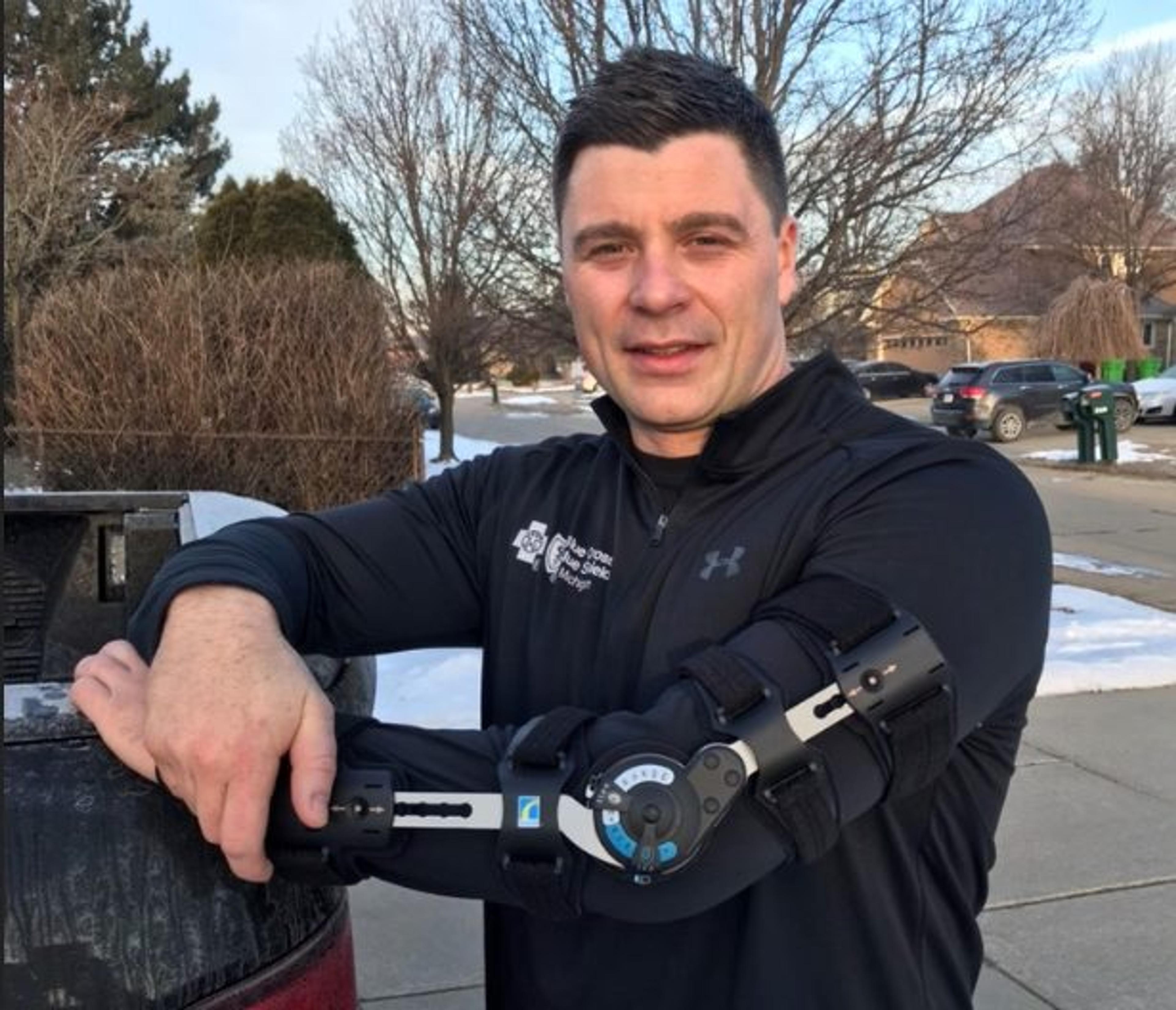Overcoming Injury: Vince’s Story

Jillian Berndtson
| 4 min read

Recovering from any injury can be draining- emotionally and physically. Recovering from life-altering injuries can be even more difficult.
Vince McKinnon, Wellness Manager at Blue Cross Blue Shield of Michigan, was met with a major challenge when he sustained an injury to his tricep. He fell out of a tree stand and landed on the ground 15 feet below him. On his way down, he hit a branch which broke and threw him forward, forcing him to land on his elbow. The force of impact on his elbow resulted in an uncommon tricep tear.
The next months would mean making adjustments to daily life, creating new routines and staying positive, despite feelings of frustration.
Accepting his injury
Prior to his fall, McKinnon’s typical workout routine included heavy weight lifting and accessory movements such as push-ups, lunges and dumbbell rows. He would also condition four to five days per week doing activities such as flipping tires, pushing and pulling sleds, sledge hammer swings, run hills and rowing. As someone who led an intensely active life, during his recovery, he wouldn’t be able to use his left arm in any capacity, making his normal exercises nearly impossible.
“You have the mental and then the physical impact…I’m very active…once I had my surgery, I could no longer do anything with that arm for about 12 weeks and then I wouldn’t be able to fully utilize it the way that I used to until about six months. So that’s the physical side- the limitation of not being able to work out the way I want to and then the day-to-day things because I can’t carry anything with that hand,” McKinnon said. “The mental side is you have to accept the injury. You have to understand what it is, you have to understand that you may not come back from it and be the same.”

(Above) Vince McKinnon recovering after his fall.
After accepting his injury, McKinnon recognized he needed to alter his daily routine to accommodate the fact that he could only use one arm. His workout regimen shifted to focus more on his legs and core and now includes weighted vest walking until his arm is fully healed.
“I needed to understand ‘okay, it’s going to take me this much longer to get ready because I only have one arm and I have to drive there.’ It’s just adding more time in your schedule and planning. Also, using support … if you plan and use support systems, I think you’ll be successful,” McKinnon said.
Shifting perspective and setting ‘I can’ goals
In addition to the physical adjustments, McKinnon also had to overcome the mental negativity he was facing. It’s easy to be angry and focus on all the things you can’t do, but that doesn’t help the healing process.
“I didn’t want to be an ‘I can’t,’ I wanted to be an ‘I can’ and what I mean by that is I had to get all the negativity out of my head,” he explained. “There were still a lot of things I could do, so for me focusing on everything I could do instead of what I couldn’t do was the important piece for me.”
Even though it may be difficult, focusing on what you are capable of will help you during your healing process.
McKinnon also thought about his path to recovery and set goals based on what he could do. He believed that this helped him to stay positive and hopeful for the future, even after being told he may never regain his full strength. Setting benchmark goals allowed him to focus on the small steps experienced during a major recovery. Each small step would bring him a little closer to his normal routine. These small steps taught him the value of not forcing or rushing the healing process.
Today, McKinnon is still recovering and following through with accommodations to his daily routine. His workout routine is still modified until he fully heals. Despite his injury, he is still working toward his benchmark goals to keep his progress moving.
“I think the silver lining is being patient. That goes for everybody … you have to let the healing process take place because being too impatient is only going to create more harm than good,” McKinnon said.
Patience. Positivity. Progress. Remembering those three concepts will help anyone on their road to recovery back from an injury.
What’s your best advice for overcoming an injury?
You may also like:
Main image photo credit: nd3000





